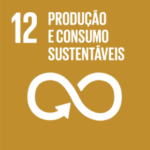
Lego. Workers’ bonuses depend on their carbon emissions
Lego’s strategy will reward employees for contributing to the Group’s sustainability objectives as of this year. The LEGO Group has announced that a percentage of
We didn't find any happenings mapped to your criteria.
Try the traditional search to find articles not yet mapped with RUA.
We didn't find any happenings mapped to your criteria.
Try the traditional search to find articles not yet mapped with RUA.
We didn't find any happenings mapped to your criteria.
Try the traditional search to find articles not yet mapped with RUA.
We didn't find any happenings mapped to your criteria.
Try the traditional search to find articles not yet mapped with RUA.
F-gases — used in refrigerators, air conditioners, heat pumps and fire protection equipment — will be phased out by 2050.
The Council of the European Union (EU) and the European Parliament have reached an agreement on the disposal of fluorinated gases, which are used in common household appliances such as refrigerators, air conditioners, heat pumps, fire protection equipment, foams and aerosols.
Their elimination will happen progressively, with the aim of reaching a zero hydrofluorocarbon (HFC) target by 2050 by having a further reduction in consumption expected between 2024 and 2049.
The agreement establishes strict conditions and deadlines for the use of fluorinated gases with a high global warming potential for servicing or maintaining various types of equipment, but also specific dates for phasing them out. These deadlines apply to sectors where it is technically and economically feasible to switch to alternatives that do not use fluorinated gases, such as domestic refrigeration, air conditioning and heat pumps.
In addition to the pact on fluorinated gases, an agreement was also reached on other regulations relating to ozone-depleting substances. Once officially ratified, the regulation will “further reduce emissions into the atmosphere and contribute to limiting the rise in global temperatures,” said the Spanish Presidency of the Council of the EU.
The negotiators agreed to strengthen bans on the marketing of products containing HFCs or fluorinated gases on the European market, speed up the adoption of more climate-friendly solutions and offer guarantees to manufacturers and investors.
“We have reached an ambitious agreement that will put an end to fluorinated greenhouse gases. This is essential, not only because these gases are extremely harmful to the climate, but also because we give clarity to companies and therefore security to investments,” said the European Parliament’s negotiator, German environmentalist MEP Bas Eickhout.
In his opinion, European companies are already at the forefront of developing clean alternatives to fluorinated gases, so the future law “will be beneficial for the climate and the European economy”.
The environmental association ZERO considers that this agreement that was reached marks “one of the greatest climate victories of this EU mandate”.
“The proposed timetable for phasing out these potent greenhouse gases (GHGs) marks a paradigm shift, leading key sectors (…) to use climate-friendly refrigerants. The inter-institutional agreement (…) between the Council, the European Parliament and the European Commission, paves the way for Europe to become the first HFC-free continent by 2050, setting an unprecedented environmental and climate standard on a global scale,” the association affirms in a statement.
Francisco Ferreira, president of ZERO, describes the pact as a triple victory. “First of all, it’s a victory for the climate, due to the significant contribution of fluorinated gases to GHG emissions in the EU. It’s also a victory for our health and environment, as fluorinated gases are a major source of dangerous PFAS (perfluoroalkylated substances) emissions in Europe. Finally, this is a victory for Europe’s green industry, which is home to the production of climate-friendly alternatives to fluorinated gases: natural refrigerants.”
Fluorinated gases include HFCs, perfluorocarbons, sulphur hexafluoride and nitrogen trifluoride, and have a great global warming potential, much greater than that of carbon dioxide, according to the Portuguese Environment Agency. In addition, they represent around 2.5% of the EU’s GHG emissions and are regulated by the Paris Agreement.
According to ZERO, fluorinated gases came onto the market to replace their predecessors. These were destroying the ozone layer and were banned by the Montreal Protocol in 1985. However, although fluorinated gases can cool without damaging the ozone layer, they contribute significantly to global warming.


Lego’s strategy will reward employees for contributing to the Group’s sustainability objectives as of this year. The LEGO Group has announced that a percentage of

It is a now or never. The latest IPCC report is clear on the urgency of the actions needed to decrease greenhouse gas emissions. The

The marketplace features a climate action hub where anyone – businesses or individuals – can learn about climate issues. Salesforce, a global company specialized in

This article promotes an action that encourages the reduction of waste generation through prevention, reduction, recycling, and reuse.
➡️ To discover more businesses that are aligned with Sustainable Development Goal 12 “Sustainable Production and Consumption” click here.
➡️ For news, tips and interviews about this topic, click here
➡️ Want to know more about the 17 United Nations Sustainable Development Goals? Click here
Esta publicação também está disponível em:
![]() Português (Portuguese (Portugal))
Português (Portuguese (Portugal))

